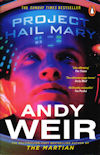Jenny Odell.
How to Do Nothing: resisting the attention economy.
Melville House. 2019
This isn’t actually about how to do “nothing”:
it’s about how to do something meaningful,
rather than the nothing that results from being
trapped in the shallows of social media
and “the attention economy”, of consumerism and incessant productivity.
It’s about how to disengage from that time-suck,
and how to use the resulting time beneficially.
The argument goes something like this.
The attention economy is bad for us:
it grabs our attention but doesn’t give anything in return;
it’s like junk food engineered for craving more rather than providing nutrition.
However, we can’t just walk away from
the world and become a hermit:
we need some contact with it to function,
to keep in touch, to do our work; we are social beings.
So we need to “resist in place”:
do what is needed, but no more.
This is of course difficult, because the digital world
is engineered to make it hard to ignore;
consumerism is the way our world current runs;
not everyone has the resources to just stop.
Odell suggests that one way to resist is to pay “deep attention”,
to go down rabbit holes.
Rather than skimming over the surface glitter,
dig down in one place, and notice, and think.
The approach that worked for her stemmed from bird watching.
Initially this was paying enough attention to distinguish species;
this led to noticing where and when they turned up.
From there, it was a short step to thinking about
the plants and the local ecology, and further.
She describes the experience as “re-rendering” her reality,
seeing the world in a new, different way.
Ecology is about networks, flows, and
a lack of sharp, easily defined boundaries;
this less sharply-defined reality needs extra attention and effort to see.
Odell suggests that deep connection
with the natural world is what is needed.
However, I think many more things are sufficiently fractal to work:
you can pay attention and dig deep and discover more and more
wherever you start:
probably any initial hobby or interest can lead
to ever-increasing depth and richness:
from birds to ecology;
from sport to physiology or economics or equipment design;
from crafting to materials engineering and science,
or supply chains, or sustainable raw material production;
and so on.
Indeed, Odell uses discovery of this ever deepening complexity and context
as evidence we do not live in a context-free simulation:
[p126]
Unlike the manufactured Main Street Cupertino, [the creek] is
not there because someone put it there;
it is not there to be productive;
it is not there as an amenity.
It is witness to a watershed that precedes us.
In that sense, the creek is a reminder that we do not live in
a simulation—a streamlined world of products, results, experiences,
reviews—but rather on a giant rock whose other lifeforms operate according to an ancient, oozing, almost chthonic logic.
Snaking through the midst of the banal everyday is a deep weirdness,
a world of flowerings, decompositions, and seepages,
of a million crawling things, of spores and lacy fungal filaments,
of minerals reacting and things being eaten away—all
just on the other side of the chain-link fence.
Odell finishes by talking of what comes next,
after this deep attention has brought (in her case)
the ecology front and centre.
This ecology has been damaged, and is in need,
not necessarily of restoration to some previous supposedly pristine state,
but certainly of remediation, to a better, more healthy state.
This requires seeing the complexity of what was there originally,
and working with that complexity, in a form of “patient collaboration”.
This work has no endpoint; it is a process of becoming.
I was surprised to find this turned into a book about the complexity of ecology,
so soon after having read What Should a Clever Moose Eat?. They make a good pair.
Even it you don’t want to turn your attention to ecology,
but rather start with some other hobby or topic of choice,
there is a lot to think about in this discussion.
Stop consuming digital junk; pay attention to your mental nourishment!
For all my book reviews, see
my main website.





















